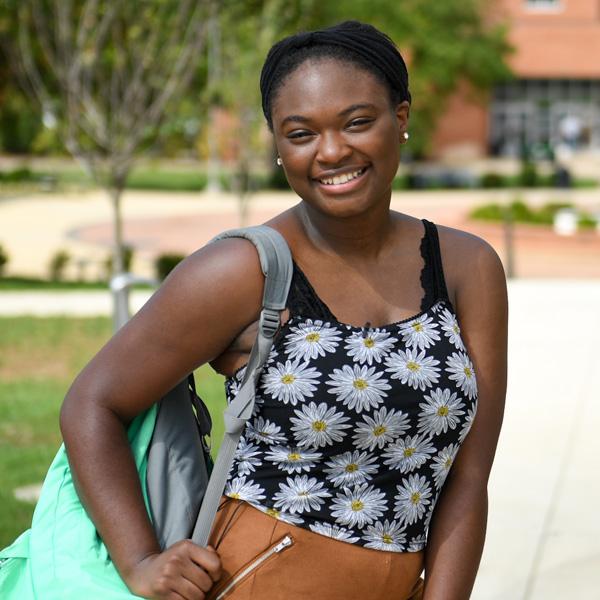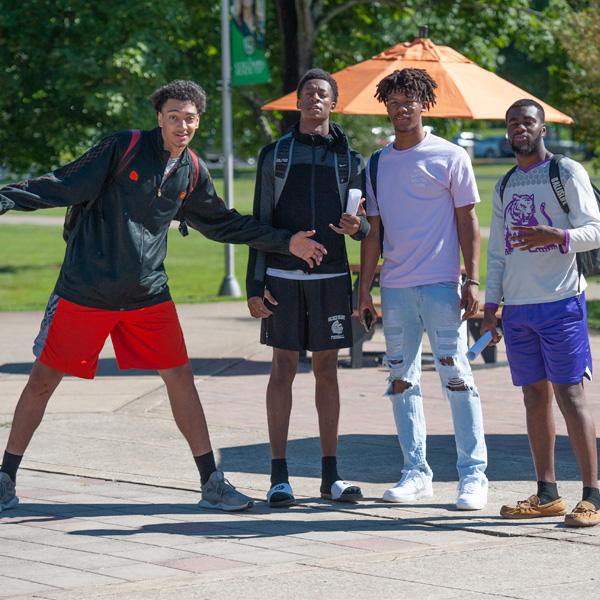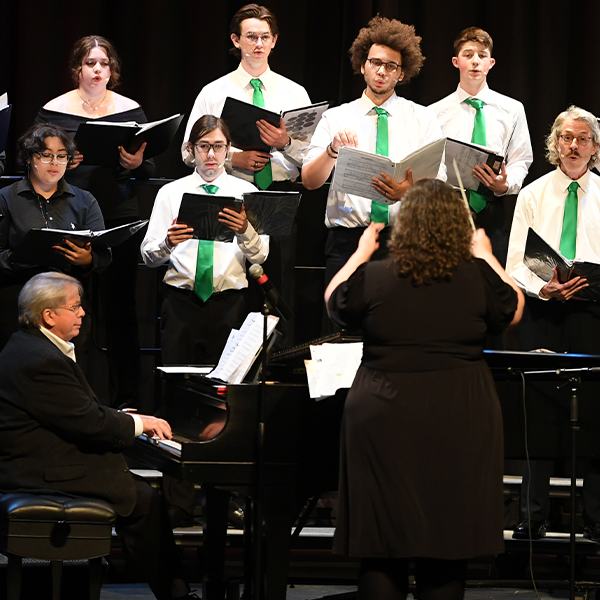Columbia State Students Attend Undergrad Research Conference
(COLUMBIA, Tenn. – March 13, 2019) - - - Columbia State Community College students Ximena Leon (Lewisburg), Megan Mohundro (Columbia) and Amanda Smith (Centerville) recently presented research projects at the Community College Undergraduate Research Initiative in Glendale, Arizona.
Leon presented “Enumeration and Characterization of Live Bacterial Cultures (probiotics) Isolated from Commercial Probiotic Products.” In this project, students counted and characterized live probiotic bacterial cultures isolated from store-bought fermented dairy products, such as yogurts, and evaluated the effects of various culture conditions on survival of these beneficial for human health bacteria.
“Attending the CCURI Conference was a great experience,” Leon said. “My poster generated a lot of interest, and it was very exciting to be able to present in front of people who were just as interested as I was. Not only did I gain confidence, but I also gained a lot of knowledge from others. I’m very grateful for this experience and I know that this has already made an impact on my education and future career.”
Mohundro presented “DNA Barcoding of a Strawberry.” This work utilized the “DNA barcode” markers that allow researchers to discriminate among different species. Students purified, analyzed, quantified and characterized strawberry DNA barcodes utilizing molecular biology techniques.
“Having the opportunity to go to Arizona and present my research was an amazing experience,” Smith said. “I am extremely appreciative of Columbia State for funding this trip. I was able to learn from other students and see what kind of research they are performing and the possible change they will make in our future. It was amazing to meet new people with similar interests and a love for science.”
Smith presented “Bacteriophage Profile in Soil Dwelling Bacteria.” Students isolated and characterized novel bacteriophages (viruses that survive only in bacteria), using molecular biology and microbiology techniques. In addition, they visualized and analyzed their specimen using a transmission electron microscope, capable of generating more than 2 million times the magnification of a regular microscope.
Leon, Mohundro and Smith will graduate from Columbia State in May 2019, and each plans to attend a four-year university to earn a bachelor’s degree in biology. Leon plans to attend the University of Tennessee, Chattanooga; Mohundro plans to attend the University of California, San Diego; and Smith plans to attend Middle Tennessee State University.
“I feel very fortunate to have such enthusiastic students in my research classes,” said Dr. Elvira Eivazova, Columbia State assistant professor of biology. “They, along with other research students who worked on the projects, are so committed and passionate about science.”
The Introduction to Biology Research course was established in 2017 to create hands-on research opportunities to promote and advance creativity, critical thinking, communication and writing skills. Students have the opportunity to learn biology research methods, write lab reports and papers in the scientific format and prepare a presentation to summarize the results of their research.
At the conference, Eivazova presented “Course-based Research Experience for Undergraduate Student Success: Lessons Learned at Columbia State Community College,” which summarized the implementation results of undergraduate biology research as a teaching tool at Columbia State.
Eivazova found that the course’s hands-on, inquiry-based laboratory research course represents a great opportunity for students to effectively learn science in a non-traditional setting. The course works equally well for male and female students, underrepresented minorities, various GPA levels and different types of educational backgrounds. The program is educationally advantageous, regardless of student career aspirations, academic, ethnic, gender or socioeconomic profiles. It is a scalable approach for improving science education for a wide range of student demographics.
The Community College Undergraduate Research Initiative uses an inquiry-based teaching model where students are exposed to real world science through a case study in an introductory course followed by a hands-on research experience resulting from questions about or related to the case. CCURI is providing resources for 44 institutional partners including introductory workshops/conferences that are building regional and national collaborations, start-up supplies and a wide variety of faculty development opportunities. To learn more about CCURI, please visit www.ccuri.org
Photo Caption: (Pictured, left to right): Columbia State students Ximena Leon, Megan Mohundro and Amanda Smith.







